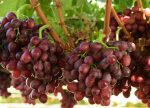The Ministry of Fisheries and Marine Resources has requested in excess of N$85 million which would be deployed towards the protection of Namibia’s living aquatic resources.
Motivating the ministry’s budget on Parliament last week, Minister of Fisheries and Marine Resource, Derek Klazen noted that this budget focuses on curbing and deterring Illegal, Unreported and Unregulated (IUU) fishing activities within Namibia’s Exclusive Economic Zone (EEZ) as well as on the inland water bodies.
“Under the Monitoring, Control and Surveillance (MCS) programme, our law enforcement officers; Fisheries Inspectors, carry out activities such as; air, sea and river patrols, to monitor whether fishing activities are carried out within the ambit of our laws. The MCS Programme includes monitoring of all landings at land-based fish processing plant/facilities, ports and off port limits, as well as to conduct coastal and land patrols and inspections,” he said.
He added: “The financial resources being requested for this programme covering expenses related to MCS activities will also cover the maintenance and repairs of the patrol vessels, aircrafts and vehicles. Therefore, there is a need to continuously maintain the seaworthiness and airworthiness of the fleet in compliance with the Classification Society.”
In order for the ministry to execute its mandate, Klazen sought approval from Parliament an amount totalling N$290,510,000 for the 2023/2024 financial year.
A lion’s share of this allocation which is N$270,510,000 is earmarked for the operational budget and the remaining N$20,000,000 will be directed to development projects.
The ministry will also deploy N$52 million towards surveys that will be conducted to provide data on marine fish stocks and guide in the setting of the Total Allowable Catch (TAC) which in turn ensures long term sustainable harvesting of marine resources.
“I am pleased to report that during the financial year 2022-23, the ministry conducted biomass survey fish stocks for all commercially exploitable fish stocks. The TAC as a management tool is informed by biomass data stock assessment and that ensures that fisheries are managed in a sustainable manner.
“This data collection and stock assessments are required for maintaining a full Marine Steward Council certification for our prime hake to allow Namibian products into lucrative markets. During the 2023/2024 financial year, the Ministry intends to continue conducting surveys on the living marine organisms and the marine environment to produce best scientific advice on the level of TACs for the different commercial fisheries,” Klazen explained.
The responsible and sustainable development of the aquaculture sector to achieve social economic benefits for the people living alongside the perennial rivers and seasonal rained pans has been earmarked to receive about N$44 million from the budget.
“The activities of this programme includes but not limited to zonation of land, sea based aqua parks, water quality monitoring phyto-sanitary testing, research training, advisory and extension services, hatchery establishment and fingerling production and distribution to subsistence farmers. Under this programme, 8 (eight) research fish farms are providing advisory and extension services to farmers as well as producing fingerlings for distribution across the country,” Klazen further said adding that the Ministry continuously assess the sustainable utilization of inland fisheries to safeguard the resource base for those who are dependent thereon.
“To this end the ministry has promoted Namibia as a leading nation in Africa regarding sustainable tenure of inland fisheries resources for the benefit of rural small-scale fishers as we continue to engage with local authorities and regional councils of the Kavango East and West and Zambezi Regions to assist communities to sustainably manage their fisheries resources. The Ministry will soon also declare by Government Gazette Maurice Nekaro in Kavango West Region and Nsundwa and Kabu-labula in Zambezi Region as community fishery reserves. We have already succeeded with the gazetting of 10 such small-scale fisheries management areas since 2016,” he said.
On the other hand, Mariculture activities are taking place on the coastal areas of Swakopmund, Walvis Bay and Lüderitz.
“It is imperative to note that measures to ensure aquatic animal and environmental health, food safety and biosecurity as well international markets are very important in the development of the mariculture sector.
“To this end, the Ministry is working hard in support of mariculture products to gain and maintain confidence in national, regional and international markets through the implementation of Water Quality and Aquatic Animal Diseases Monitoring Programme in production and potential mariculture areas in the coast,” Klazen said.










